
Soutien financier du programme « L'Europe pour les citoyens »
Copyright © 2024 CEMR
Réalisé avec amour en Europe par Blacksmith
1 Square de Meeûs
B – 1000 Bruxelles
T: + 32 2 511 74 77 Fax : + 32 2 511 09 49
E: info@ccre-cemr.org

Austria is a semi-presidential representative democracy that governs its federal territory through a centralised federalism model. Austria has a Federation (Bund) and local governments. Both the federal and state constitutions recognise municipalities as legal entities with self-government authority. It is a member of the European Union, and it signed the Schengen Agreement in 1995.
Associations:
Association of Municipalities
Austrian Association of Municipalities

Bosnia and Herzegovina is a federal state divided into two entities, the Republic of Srpska (RS) and the Federation of Bosnia and Herzegovina (FBiH) and Brcko District, which has been ascribed a special district status that falls outside of the jurisdiction of the Republic of Srpska. The Republic of Srpska is composed of municipalities (opština) while the Federation BiH is composed of municipalities (općina) and cantons (kantoni).
Associations:
Association of Local Authorities of Republic of Srpska
Association of Municipalities and Cities of the Federation of Bosnia and Herzegovina

Belgium is a federal parliamentary constitutional monarchy in Western Europe. It is known for its complex political structure, divided between the federal government, regions, and language communities. It plays a central role in the European Union, with Brussels being the de facto capital of the EU.
Associations:
Union of Belgian Cities and Municipalities
Association of the City and the Municipalities of the Brussels-Capital Region (BRULOCALIS)
Association of Flemish Cities and Municipalities
Union des Villes et Communes de Wallonie

Bulgaria is a parliamentary republic in Southeast Europe. It is a member of the European Union with a political system based on a multi-party democracy. The country is governed by a President, who serves as head of state, and a Prime Minister leading the executive branch.
Associations:
National Association of Municipalities in the Republic of Bulgaria

Cyprus is a unitary presidential republic in the Eastern Mediterranean, though it is politically divided between the internationally recognized Republic of Cyprus and the Turkish-controlled north. It is a member of the European Union.
Associations:
Union of Cyprus Municipalities

The Czech Republic is a parliamentary representative democracy in Central Europe, and a member of the European Union. It operates under a multi-party system, with a President as head of state and a Prime Minister leading the government.
Associations:
Union of Towns and Municipalities of the Czech Republic

Germany is a federal parliamentary republic in Central Europe, and one of the most influential countries in the European Union. It is governed by a Chancellor and a multi-tiered system of government, with 16 federal states (Länder).
Associations:
Association of German Cities
German section of CEMR (RGRE)
German Association of Towns and Municipalities

Denmark is a parliamentary constitutional monarchy in Northern Europe. Known for its strong welfare state, Denmark is a member of the European Union but retains the Danish krone as its currency. The Prime Minister leads the government.
Associations:
Danish Regions
Local Government Denmark (LGDK)

Estonia is a democratic republic in Northern Europe. Known for its advanced e-governance and digital society, Estonia is a member of both the European Union. The country is governed by a President and a Prime Minister.
Associations:
Association of Estonian Cities and Municipalities

Spain is a parliamentary constitutional monarchy in Southern Europe, and one of the largest members of the European Union. It is governed by a King and a Prime Minister, with significant regional autonomy in several areas.
Associations:
Spanish Federation of Municipalities and Provinces

Finland is a parliamentary republic in Northern Europe, known for its high standard of living and commitment to social welfare. The President has limited executive powers, while the Prime Minister leads the government. Finland is a member of the European Union.
Associations:
Association of Finnish Cities and Municipalities

France is a semi-presidential republic in Western Europe, one of the founding members of the European Union and a permanent member of the United Nations Security Council. It is governed by a President and a Prime Minister, with a strong multi-party system.
Associations:
French Association of the Council of European Municipalities and Regions

The United Kingdom is a parliamentary constitutional monarchy, consisting of four nations: England, Scotland, Wales, and Northern Ireland. The political system is governed by a monarch and a Prime Minister.
Associations:
Convention of Scottish Local Authorities (COSLA)
Northern Ireland Local Government Association (NILGA)
Welsh Local Government Association (WLGA)
Local Government Association (LGA)

Georgia is a unitary state composed of municipalities (munits’ipaliteti) and self-governing cities (tvitmmartveli qalaqebi).
The country itself is a unitary parliamentary republic, with its government held accountable under a unicameral parliamentary system.
Associations:
National Association of Local Authorities of Georgia

Greece is a parliamentary republic in Southern Europe, known as the cradle of Western democracy. It is a member of the European Union and NATO. The President serves as the ceremonial head of state, with the Prime Minister acting as head of government.
Associations:
Central Union of Municipalities of Greece (KEDE)

Croatia is a parliamentary republic located in Southeast Europe. It became a member of the European Union in 2013. The political system includes a President, who has limited powers, and a Prime Minister who heads the government.
Associations:
Croatian County Association
Croatian Union of Municipalities

Hungary is a parliamentary republic in Central Europe, and a member of the European Union. The political system is based on a multi-party democracy, with the President serving as head of state and the Prime Minister as head of government.
Associations:
Hungarian National Association of Local Authorities
Partnership of Hungarian Local Government Associations
Association of Cities with County Rank
National Association of Municipalities and Small Villages
National Associations of County Governments
National Association of Hungarian Municipalities

Iceland is a Nordic parliamentary republic located in the North Atlantic. It has a strong tradition of democracy and social welfare. The President serves as a ceremonial head of state, while the Prime Minister leads the government.
Associations:
Association of Local Authorities in Iceland

Italy is a parliamentary republic in Southern Europe. As a founding member of the European Union, Italy has a diverse and dynamic political system with a President and a Prime Minister. It operates under a multi-party system.
Associations:
CEMR Italian Section (AICCRE)

Lithuania is a parliamentary republic in the Baltic region of Northern Europe. A member of the European Union and NATO, Lithuania is governed by a President and a Prime Minister, with a multi-party system.
Associations:
Association of Local Authorities in Lithuania

Luxembourg is a parliamentary constitutional monarchy and a landlocked country in Western Europe. It is known for its stable political environment and strong economy, being one of the founding members of the European Union. The country is governed by a Grand Duke (as head of state) and a Prime Minister, with a strong parliamentary system in place.
Associations:
Association of Luxembourg Cities and Municipalities

Latvia is a parliamentary republic in the Baltic region of Northern Europe. The President has a ceremonial role, while the Prime Minister leads the executive government.
Associations:
Latvian Association of Local and Regional Governments

Moldova is a parliamentary republic in Eastern Europe, with close ties to both the European Union and Russia. The President is the head of state, while the Prime Minister leads the government.
Associations:
Congress of Local Authorities of Moldova

Montenegro is a parliamentary republic in Southeast Europe, and is in the process of joining the European Union. It has a multi-party political system, with a President as head of state and a Prime Minister as head of government.
Associations:
Union of Municipalities of Montenegro

North Macedonia is a parliamentary republic in Southeast Europe. It has aspirations to join the European Union and NATO, and operates under a multi-party system with a President and a Prime Minister.
Associations:
Association of the Units of Local Self-Government of the Republic of North Macedonia
Network of Associations of Local Authorities of South-East Europe (NALAS)

The Netherlands is a parliamentary constitutional monarchy in Western Europe. It has a decentralised political system with a King as head of state and a Prime Minister as head of government. It is a founding member of the European Union.
Associations:
Association of Provinces of the Netherlands
Association of Netherlands Municipalities

Norway is a constitutional monarchy in Northern Europe, though it is not a member of the European Union. It has a strong welfare system and a parliamentary political system, with a King and a Prime Minister.
Associations:
Norwegian Association of Local and Regional Authorities (KS)

Poland is a parliamentary republic in Central Europe, and a member of the European Union. It is governed by a President and a Prime Minister, with a multi-party system in place.
Associations:
Association of Polish Cities
Association of Polish Counties

Portugal is a democratic republic in southwestern Europe, known for its stable political environment and active participation in the European Union. Governed by a semi-presidential system, Portugal’s political landscape features a President, Prime Minister, and a multi-party parliament.
Associations:
National Association of Portuguese Municipalities (ANMP)

Romania is a semi-presidential republic in Southeast Europe, and a member of the European Union. It operates with a multi-party system, with a President and a Prime Minister sharing executive powers.
Associations:
Association of Communes of Romania
Romanian Municipalities Association

Serbia is a parliamentary republic in Southeast Europe, with aspirations to join the European Union. It operates under a multi-party system, with a President and a Prime Minister.
Associations:
Standing Conference of Towns and Municipalities of Serbia

Sweden is a parliamentary constitutional monarchy in Northern Europe, known for its strong welfare state and high standard of living. The King holds a ceremonial role, while the Prime Minister leads the government. Sweden is a member of the European Union.
Associations:
Swedish Association of Local Authorities and Regions

Slovenia is a parliamentary republic in Central Europe, known for its high standard of living and strong social policies. It is a member of the European Union, governed by a President and a Prime Minister.
<
Associations:
Association of Urban Municipalities of Slovenia
Association of Municipalities and Towns of Slovenia

Slovakia is a parliamentary republic in Central Europe, and a member of the European Union. It has a multi-party system, with a President and a Prime Minister leading the executive government.
Associations:
Association of Towns and Communities of Slovakia

Türkiye is a presidential republic straddling Southeast Europe and Western Asia. The President holds significant executive powers under the 2018 constitutional reform, with a multi-party political system in place.
Associations:
Union of Municipalities of Turkiye

Ukraine is a semi-presidential republic in Eastern Europe, currently engaged in conflict with Russia over territorial disputes. It is governed by a President and a Prime Minister, with aspirations to join the European Union.
Associations:
Association of Ukrainian Cities
Ukrainian Association of District and Regional Councils

Malta is a parliamentary republic located in the Mediterranean, and one of the smallest countries in the European Union. It is governed by a Prime Minister and a unicameral parliamentary system, with 68 local councils serving as the country’s primary level of local government.
Associations:
Local Councils’ Association
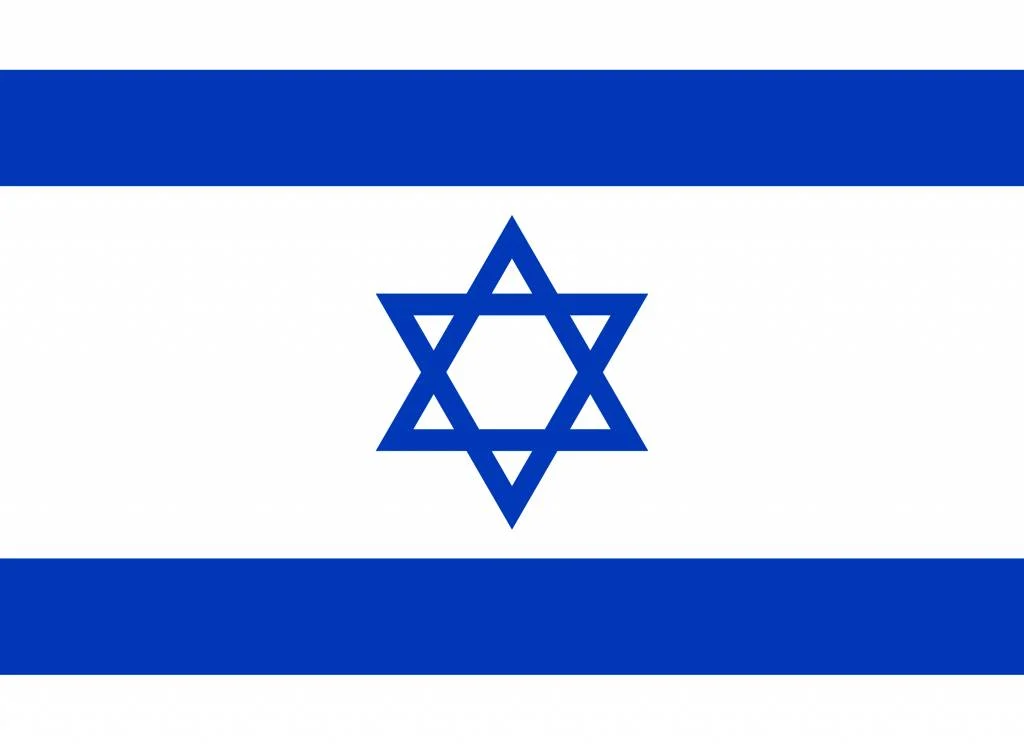
Israel is a parliamentary democracy in the Middle East. It is known for its technological innovation and dynamic political landscape. The President holds a largely ceremonial role, while the Prime Minister leads the government.
Associations:
Federation of Local Authorities in Israel

French Association of the Council of European Municipalities and Regions
President: LAURENT Phillipe
Secretary General: QUERNEZ Michaël
Director General: MOREUX Christophe
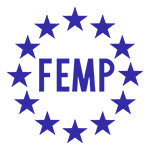
Spanish Federation of Municipalities and Provinces
President: GARCÍA-PELAYO JURADO María José
Vice President: REY GARCÍA Inés
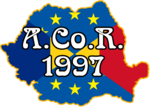
Association of Communes of Romania
President: DRĂGHICI Emil
Secretary General: BUTE Ghiorghe
Director General: ȚÂRA Sergiu

Association of Estonian Cities and Municipalities
President: Mihhail KOLVART
Director General: Veikko LUHALAID

Association of Finnish Cities and Municipalities
President: RASANEN Joona
Director General: KARHUNEN Minna

Association of German Cities
President: Markus LEWE
Secretary General: Helmut DEDY

Association of Local Authorities in Iceland
President: HAFSTEINSDOTTIR Aldis
Director General: BJORNSSON Karl

Association of Local Authorities of Republic of Srpska
Secretary General: Aco PANTIC

Association of Luxembourg Cities and Municipalities
President: EICHER Emile
Secretary General: KOOB Gérard

Association of Municipalities and Cities of the Federation of Bosnia and Herzegovina
President: Faris HASANBEGOVIC
Director General: Vesna TRAVLJANIN

Association of Municipalities and Towns of Slovenia
President: Jasna GABRIC
Secretary General: Jasmina VIDMAR

Association of Netherlands Municipalities
President: VAN ZANEN Jan
Director General: GELUK Leonard
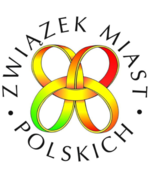
Association of Polish Cities
President: SUTRYK Jacek
Executive Director: PORAWSKI Andrzej

Association of Polish Counties
President: PŁONKA Andrzej
Secretary General: BORUSIEWICZ Rudolf

Association of Provinces of the Netherlands
President: SMIT Jaap
Director General: FRAANJE M. J.

Association of the Units of Local Self-Government of the Republic of North Macedonia
President: ARSOVSKA Danela
Director General: PERISIC Dusica
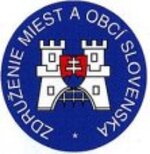
Association of Towns and Communities of Slovakia
President: Branislav TREGER
Director General: Michal KALINAK

Association of Urban Municipalities of Slovenia
President: DERMOL Peter
Secretary General: KOSPENDA Miran
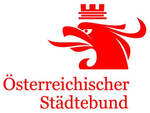
Austrian Association of Cities and Towns
President: PRESSL Johannes
Secretary General: LEISS Walter

Association of the City and the Municipalities of the Brussels-Capital Region (BRULOCALIS)
President: DELEUZE Olivier
Director General: FRANÇOIS Corinne

Association of Local Authorities in Lithuania
President: KLISONIS Audrius
Director General: ŽAKAITIENE Roma

Central Union of Municipalities of Greece (KEDE)
President: Lazaros KYRIZOGLOU
Secretary General: Dimitris KAFANTARIS
Director General: Panagiotis VASSILIOU

Congress of Local Authorities of Moldova
President: Tatiana BADAN
Director General: Viorel FURDUI

Croatian County Association
President: Goran PAUK
Secretary General: Melita PAVLEK

Convention of Scottish Local Authorities (COSLA)
President: EVISON Alison

Danish Regions
President: LOSE Stephanie
General Director: WOLF Adam

Federation of Local Authorities in Israel
President: Haim BIBAS
General Director: Shlomo DOLBERG

German section of CEMR (RGRE)
President: SCHNAUDIGEL Christoph
Secretary General: Uwe ZIMMERMANN

Association of Ukrainian Cities
President: Vitaliy KLITSCHKO
Director General: Oleksandr SLOBOZHAN

German Association of Towns and Municipalities
President: Uwe BRANDL
Director General: Gerd LANDSBERG
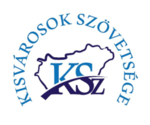
Partnership of Hungarian Local Government Associations
President: LIPÖK Sándor
Secretariat: HAJDU Gabriella

Latvian Association of Local and Regional Governments
President: KAMINSKIS Gints
Secretary General: PRIEDE Mudīte

Local Councils’ Association
President: FAVA Mario

CEMR Italian Section (AICCRE)
President: BERTANI Milena
Secretary: CIASULLO Oreste

Local Government Association (LGA)
President: JAMIESON James

Local Government Denmark (LGDK)
President: BUNDSGAARD Jacob
General Director: WENDELBOE Kristian

National Association of Local Authorities of Georgia
President: KALADZE Kakha
Secretary General: RUKHADZE Nino

National Association of Municipalities in the Republic of Bulgaria
President: PANOV Daniel
Director General: GEROGIEVA Silviya

National Association of Portuguese Municipalities (ANMP)
President: SALGUEIRO Luísa
Secretary General: SOLHEIRO Rui

Network of Associations of Local Authorities of South-East Europe (NALAS)
Director General: ZAJAZI Kelmend

Norwegian Association of Local and Regional Authorities (KS)
President: HELGESEN Gunn Marit
Director General: AGA Geir B.

Romanian Municipalities Association
President: BOC Emil
Secretary General: SIMIONESCU Aurel

Standing Conference of Towns and Municipalities of Serbia
President: CVETANOVIC Goran
Secretary General: TARBUK Nikola

Swedish Association of Local Authorities and Regions
President: HENRIKSSON Anders
Secretary General: ISLING Staffan
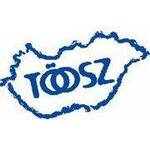
Hungarian National Association of Local Authorities
President: SCHMIDT Jenő
Secretary General: GYERGYÁK Ferenc

Association of Cities with County Rank
President: SZITA Károly
Secretary General: PAPP Erika
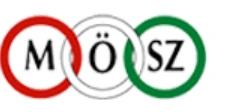
National Association of Hungarian Municipalities
President: GÉMESI György
Secretary General: ZSOLT Fabián
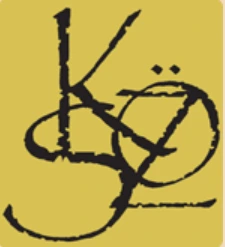
National Association of Municipalities and Small Villages
President: TÓTH Gábor
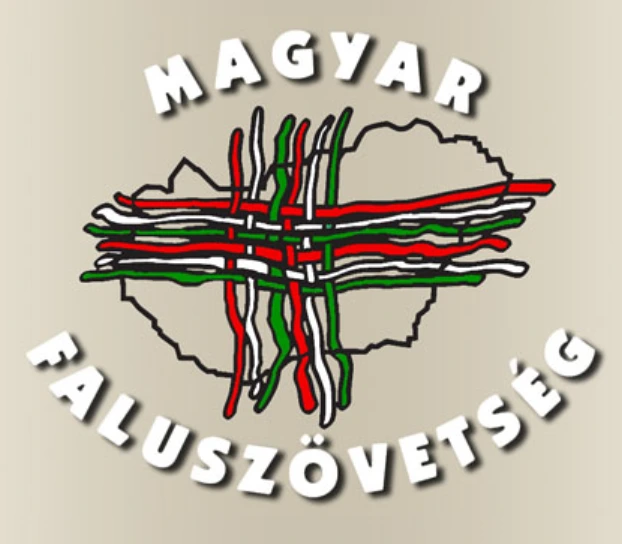
Hungarian Association of Villages
President: SZABÓ Gellért

National Associations of County Governments
President: PAJNA Zoltán
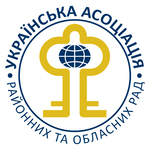
Ukrainian Association of District and Regional Councils
President: CHERNOV Sergiy
Secretary General: ANDRIYCHUK Yuriy

Union des Villes et Communes de Wallonie
President: DAYE Maxime
Secretary General: BOVERIE Michèle

Union of Belgian Cities and Municipalities
Secretary General: FRANÇOIS Corinne

Union of Cyprus Municipalities
President: VYRAS Andreas
Secretary General: SOCRATOUS Michalis
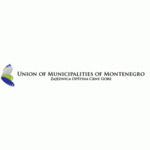
Union of Municipalities of Montenegro
President: GRBOVIC Veselin
Secretary General: BOJADŽIĆ Refik

Union of Municipalities of Turkiye
President: IMAMOGLU Ekrem
Secretary General: YILDIZ Suat

Association of Flemish Cities and Municipalities
President: DRIES Wim
Secretary General: SNIJKERS Kris

Welsh Local Government Association (WLGA)
President: MORGAN Andrew

Northern Ireland Local Government Association (NILGA)
President: BURGESS Robert

Union of Towns and Municipalities of the Czech Republic
President: LUKL Frantisek
Director General: VLADYKOVÁ Radka
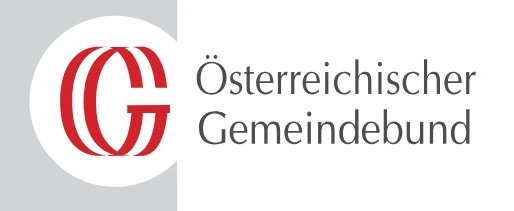
Austrian Association of Municipalities
President: PRESSL, Johannes
Secretary General: POYSSL, Gerald Mag.

Croatian Union of Municipalities
President: BARICEVIC Martin
Secretary General: CICAK Mato
